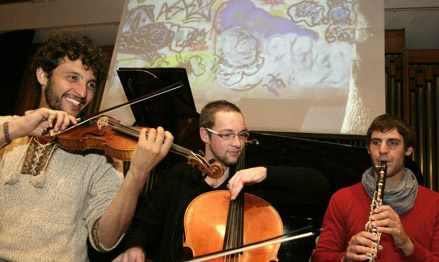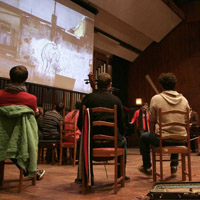Latest News Archive
Please select Category, Year, and then Month to display items
12 October 2020
|
Story Arina Engelbrecht
|
Photo Supplied
 Arina Engelbrecht from Organisational Development and Employee Well-being believes physical activity has a number of benefits for one’s health, including stress relief.
Arina Engelbrecht from Organisational Development and Employee Well-being believes physical activity has a number of benefits for one’s health, including stress relief.
Being physically active plays a big role in preventing the development of mental-health problems and in improving the quality of life of people experiencing mental-health problems.
Treatment for depression
Physical activity can be an alternative treatment for depression. It can be used as a stand-alone treatment or in combination with medication and/or psychological therapy. It promotes all kinds of changes in the brain, including neural growth, reduced inflammation, and new activity patterns are formed that promote feelings of calm and well-being. It releases endorphins – powerful chemicals in the brain that energise your spirit and make you feel good.
Physical activity can be very effective in relieving stress. Research in adults has found that physically active individuals tend to have lower stress levels compared to individuals who are less active. It also leads to improved sleep. When a person sleeps better and feels more rested, overall quality of life improves. They cope better with daily life stressors.
Reduce Alzheimer's risk
Regular physical activity can reduce your risk of developing Alzheimer's disease by up to 50%. It can also slow down further deterioration in those who have already started to develop cognitive problems. It stimulates the brain’s ability to maintain old connections as well as to make new ones.
A study asked people to rate their mood immediately after periods of physical activity (e.g. going for a walk/run, cycling, doing housework) and periods of inactivity (e.g. reading a book or watching television). Researchers found that participants felt more content, more awake, and calmer after being physically active compared to after periods of inactivity.
In conclusion, people who are physically active feel a sense of well-being, feel more energetic throughout the day, sleep better at night, have sharper memories, and feel more relaxed and positive about themselves and their lives.
“Being physically active not only changes your body, it changes your mind,
attitude, and your mood.” – Arina Engelbrecht
‘Celebrating the music of our times’
2013-07-25
|
 |
| 25 July 2013 |
The Odeion School of Music’s (OSM) New Music Week, hosted from 17–20 July 2013, offered an experience of profundity.
This was the second week-long festival of its kind to be hosted by the OSM – last year the 90th birthday of the South African composer, Stefans Grové, was celebrated with concerts and a symposium. This year the New Music Week focused on the visit of Ensemble Trans-Z under the artistic leadership of former OSM student, Alfred Vorster, a composer living in Zürich. The Order of the Odeion School of Music was bestowed upon Vorster during the festival. The members of the ensemble are the Belgian pianist Lukas Huisman, Danré Strydom (currently an OSM doctoral student in clarinet, based in Ghent), the Argentinian violinist Juan Braceras and the Swedish cellist Karolina Öhman (both currently living in Basel, Switzerland).
The week included three lectures. Lukas Huisman elucidated his doctoral project, Alfred Vorster offered an analytical perspective on the work of Helmut Lachenmann and Hannes Taljaard (Potchefstroom) delivered a commentary on his own composition practice. In addition to presenting masters’ classes in their individual instruments, Ensemble Trans-Z also hosted two workshops – one for the Mangaung String Project and another for OSM students and staff. These workshops focused on creative improvisation practices within an avant-garde style.
composition practice. In addition to presenting masters’ classes in their individual instruments, Ensemble Trans-Z also hosted two workshops – one for the Mangaung String Project and another for OSM students and staff. These workshops focused on creative improvisation practices within an avant-garde style.
The highlight of the festival was two gala concerts that were held on 19 and 20 July. The first concert was hosted by Ensemble Trans-Z themselves, with a selection of compositions in the avant-garde style. The programme included challenging listening material and was creatively presented with unconventional lighting techniques and visual material.
The concert on 20 July consisted of New Music of a more conventional nature. The Odeion String Quartet offered a varied presentation which consisted of a rich mix of talent. OSM postgraduate students Marianne Cilliers, Karol Legierski and Eljee du Plooy formed part of this spectacular performance. The OSM flute lecturer, Handri Loots and the members of Ensemble Trans-Z supplied additional depth to the concert. The experience was made extra special by the recently-formed New Music Ensemble of the School of Music at the North-West University – led by Augusto Arias. Under conductorship of Jan-Moritz Onken, the OSM Camerata completed this impressive collaboration.
The Camerata’s recital of Hendrik Hofmeyr’s Phantom Waltz, which the composer newly arranged especially for this ensemble, was but one of the artistic highlights of an inspiring presentation.